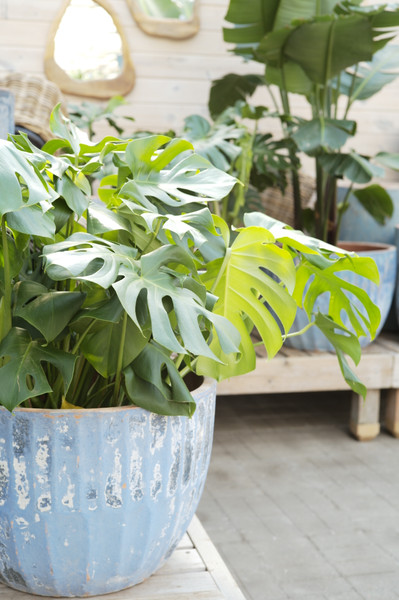The Power of Plants
Posted by Jessie Jacobson on Feb 23rd 2026
The Power of Plants
According to the EPA, Americans spend about 90% of their time indoors. Tragic! Because of this, humans are missing out on time in nature and its numerous benefits. Many scientific studies support the idea that gardening and spending time with plants is the perfect way to connect with nature & cultivate wellbeing.
Plants reduce stress and anxiety, create a general sense of wellbeing.
Soil contains a strain of bacterium, Mycobacterium vaccae, that has been found to trigger the release of serotonin, which in turn elevates mood and decreases anxiety. A 2015 study published in the Journal of Physiological Anthropology found that active interaction with plants can reduce physiological and psychological stress - which is accomplished through the suppression of sympathetic nervous system activity and lowering diastolic blood pressure which promotes comfort and soothing.
Plants increase indoor humidity through transpiration
Transpiration is the movement of water through plants and its evaporation from leaves, stems, and flowers into the air. During a growing season, a leaf will transpire many times its own weight in water. Increased humidity can decrease the occurrence and severity of dry skin, sore throat, dry cough, and colds. Extra water vapor in the air can help prevent the mucous membranes of the nose and throat from drying out, leaving a person less susceptible to viruses, bacteria, and allergens.
Plants improve productivity, creativity, and focus
A 2008 study of office workers found statistically significant differences regarding perceptions of quality of life, job satisfaction, work enviroment, and relationships with leaders and co-workers.
Studies conducted at Texas A&M, Washington State University, and Japan's Doshisha University have illustrated the positive impacts of plants within work environments. Foliage plants reduce mental fatigue, help prevent burnout, draw focus away from distractions and discomfort, reduce stress, reduce anxiey, and lead to less absences from work. Plants have also been linked to small increases in creativity and memory retention. Overall improved performance while at work!
Plants bring people together and promote a sense of community.
Caring for plants in a communal space improves teamwork and social skills. Gardening and tending to plants promotes a community of people, who may not otherwise interact creating an opportunity for problem solving and collaboration. Folks are also connecting online in plant and gardending groups devoted to planty conversations: buying, selling, and trading plants.
All you lovely garden and plant people who visit local greenhouses as meeting spaces continue to deepen relationships with planty friends, staff members, and fellow shoppers!
Plants improve sleep quality
We know that plants have been proven to have a calming effect, meaning the simple addition of one (or ten!) to your room could aid relaxation and lead to better sleep. Research shows that spending just 15 minutes with plants reduces stress hormone concentrations and the time it takes to fall asleep. Magic! Just make sure not to cuddle up to your favorite cactus...
Plants aid in healing and recovery
Multiple studies show that viewing plants during recovery after surgery or while in the hospital directly impacted more positive health outcomes. This is evidenced by reports of lower systolic blood pressure, lower ratings of pain, anxiety, and fatigue than patients in the control room. Based on patients' comments, plants brightened up the room environment, reduced stress, and also conveyed positive impressions of hospital employees caring for patients. Warm fuzzies all over!
Plants purify the air
Plants can improve air quality, but only to a certain extent. Yes, plants are effective at making the air smell fresh and clean, but further research on the often-cited NASA study about the ability of plants to purify the air has revealed that unfortunately plants have a negligible effect on the level of air pollutants indoors. Between 10 and 1000 plants per square meter would be needed in a room for the filtering abilities of plants to even be comparable to air exchange from simple indoor-outdoor air flow. So yes NASA, living in a biodome would yield extremely high air quality - maybe a bit like you experience at Tonkadale!

